30 Reasons to Play Magic
In October of this year (2022), Magic starts its 30th Anniversary celebration, being a milestone in the lives of many people, as it's the first TCGs created and one of the most played in the world.
To celebrate these 30 years, I've separated 30 reasons to play Magic — you can send it to that friend who's undecided about learning how to play, for example.
Exercise Logical Reasoning
When building a deck, you need to imagine different game situations and how your deck should work, in order to perform well and have balanced matchups.
Ad
Magic is a game where experience also counts: knowing whether your opponent is nervous or feeling confident can indicate what cards they have in hand, for example.
Knowing other decks will also help you to face your opponents better.
Different Gameplay Styles
There are different game strategies in Magic: from fast decks that with low-cost creatures, to slow decks that respond to everything the opponent does. There's also a mix of the two, or decks that drop an important creature and protect it until the end of the game.
There are also combo decks, which don't interact much with the opponent and win with a specific card combination.
Various ways to win (or lose) the game
There are numerous ways to win the game in MTG: the first one we learned is by dealing damage with creatures, but it is also possible to deal damage with spells.
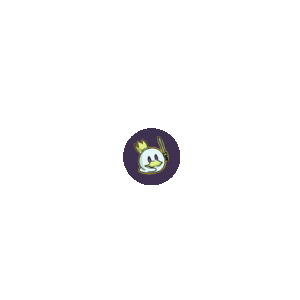
There are the Poison counters, where you only need 10 counters to lose, or also some cards that, if you meet a condition (such as having 6 cards of different costs in your hand or having no cards in your deck), you win.

In addition, there are also cards that prevent you from losing the game, like Platinum Angel, or that make you lose the game if you don't fulfill a condition after casting it, like Summoner's Pact or Chance for Glory.
High-Level Competitions
There are Competitive circuits in Magic, with prize pools and major tournaments. It is also possible to play tournaments online through Arena or MTGO.
There is even a Hall of Fame with past World Champions, among others.
Grinding
It is possible, in both tabletop and digital Magic, to use the game as a “income” if necessary. It's not easy, as it will depend on your performance, and it can be tiring and exhausting — but it's possible.
For example, there are events who give $1,000 in prize money, but the entry fee can be high. In Magic Online (MTGO) there are Challenges every week, which give the prize in Chests, which can be sold for Tix, and these Tix can be sold later.
Learn to Win
Who doesn't like to win, right? But sometimes, victory goes to our head, and we feel convinced that we will never lose.
In Magic, we always have ups and downs. So, when we have game experience and knowledge, we have chances to win — and when that happens, it's still good to value our opponent, after all, they also made an effort.
It is very common, in friendly places, that at the end of the game, players discuss how the game was, giving tips and trading experiences.
Learn to Lose
Just like winning, losing is also a reality. Nobody likes to lose, even more if it's a close match or if you lose for timeout.
But it's no use taking it out on your opponent, if they have done everything by the rules: sometimes we need to swallow our pride and congratulate them. And life goes on, let's go to the next game!
Philosophy of Colors and Identity
Ad
In Magic, there are 5 main colors, and each of them has a different philosophy, characterization, and mechanics.
In addition to the 5 colors, we have the combination between them in pairs of 2 or 3 colors, even 4 or 5 in the same deck, modifying the strategies even more. It is possible to develop unique strategies according to your personal taste!

White 
Loyalty, honor, structure and organization are part of its philosophy — together we are stronger! The player in white can be inspirational or charitable, or even totalitarian and dogmatic.
Green 
The Personality of green respects death, nature, in short — the natural cycle of things. The player in green values wisdom, ferocity and quick adaptation. It can be with a small elf that generates mana, or even huge, destructive creatures.
Blue 
Blue's personality prides itself on solving the mysteries and riddles in the game — everything can be solved with planning and preparation! Its player can be either brilliant, capable of creating incredible things, or cold and manipulative.
Red 
The Red Personality can be destructive and volatile. It also likes improvisation, reacting quickly to stimuli. The player in red can be impulsive, destructive, and even quite chaotic.
Black 
Black mana's personality values individual rights and being understood — often, it can be misinterpreted, as its players can be ruthless.
You can sacrifice your own cards sometimes — but if your opponent loses more resources than you, that's great!
Stimulate Creativity
It's possible to build different decks with different themes, especially in casual formats — I've even seen things like bald tribal in Commander.
There are still Limited formats, such as Draft and Sealed, where you build decks from the cards you have available (that comes from booster packs) — meaning you must be flexible, and use creativity combined with strategy to form a good deck and compete with other opponents who did the same.
The Judge Program
In Magic, there is a formation and tests for those who seek to be a judge of the game, in addition to defining the level of authority of them. It is recommended that events always have the presence of a judge, both to resolve conflicting situations and to resolve rules in case there is a confusion.
In this way, it is possible to have a better game experience.
Socialize/Make Friends
We are human beings, and we need to have fun and interact with other people.
Magic is a great game to have a good time and meet new people who share your interests — and you might have a lot in common, as in 30 years the game has accumulated countless different abilities, arts, and strategies.
Ad
Amazing Illustrations
When it started, Magic hired several freelancer artists who produced random illustration. Over time, it has become more consistent with the Lore's themes that emerged, and some artists became stamped figures.
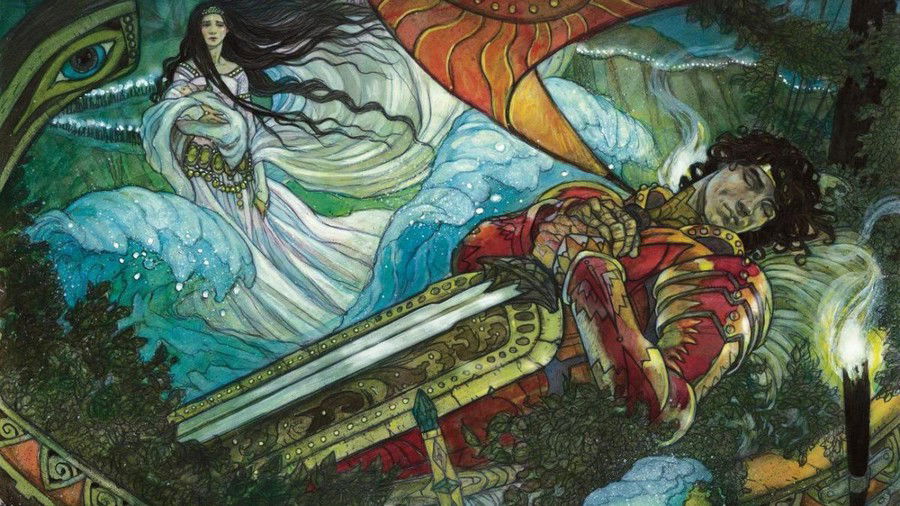
Magic's illustrations are exceptional, and often attract attention. There is one for all kinds of tastes.
In addition to the illustrative card art, there are also different borders, foil cards, as well as promotional cards.

Collection Themes
Precisely because they have such different illustration that vary on each set, in addition to different treatments of cards and tribes or unique characters, many players choose to make Magic collections for the sake of their eyes and heart.
Here are some examples:
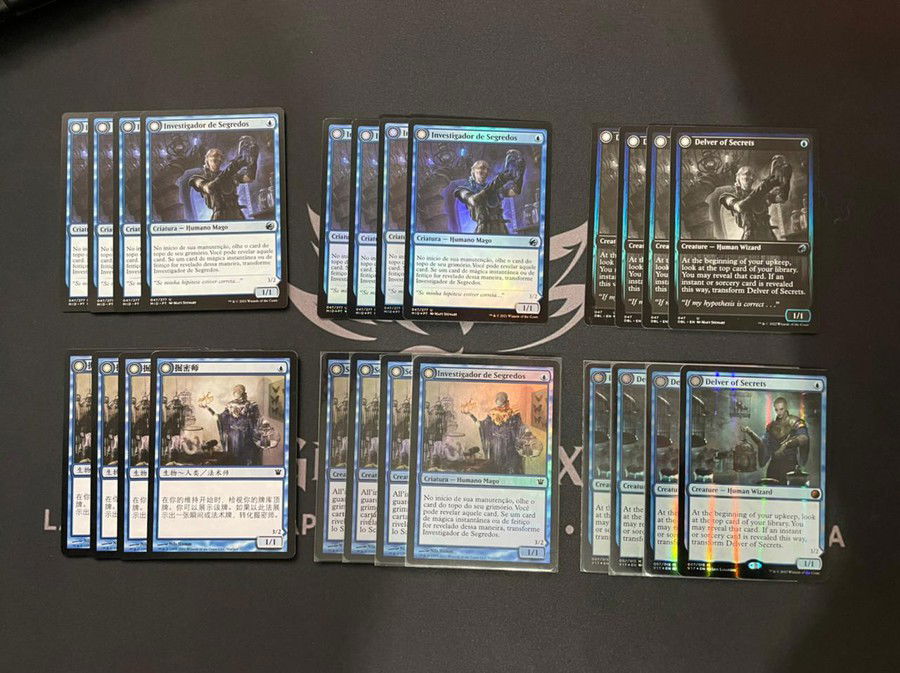
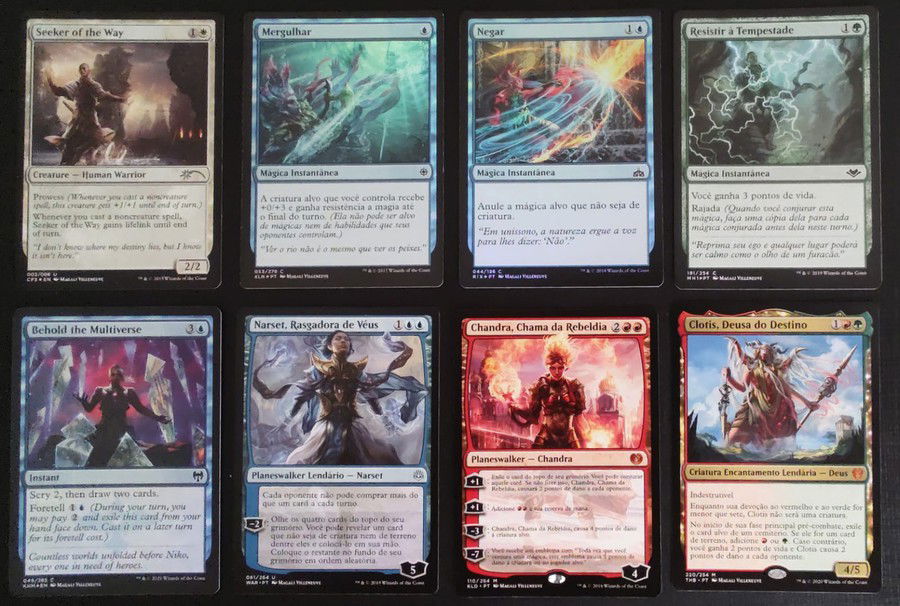
Making Investments
As this is a game where boosters are usually opened to acquire cards, and people are looking for specific things for their decks, there is a whole market for buying and selling cards, with many stores and a whole pricing tag system.
The cards' price tag varies according to supply and demand, and there are cards that are worth thousands of dollars, and others that are worth pennies. Understanding the market variation and what it can value can be an extra income, for example, but it can also be a risky investment.
Laughing at Bizarre Situations
Sometimes, bizarre situations happen mid-game, like a huge stack of spells to resolve, or a mirror (fighting your own deck) of tribal decks where you and your opponent have 30 massive creatures with hundreds of abilities.
It's also gratifying when your deck that has a weird situation works and your friends are impressed — like creating a combo that generates infinite frog tokens, for example.
Alternate Game Modes
We already know that the official formats of the game exists, but it is also possible to create new ones with your friends!
For example, there is Planechase, which is a format where the planes change during the game, and the effects affect the battlefield and resources. There are also Cubes, which are almost like “drafts”, but with certain themes or sets.
There's still plenty of room to invent new ways to play cards with your friends.
It's Customizable
In addition to having various strategies available for building decks and different versions of cards, there are other cosmetics in the game such as sleeves, playmats, custom tokens, and even alternate life counters.
It's possible to customize the cards themselves with "altered arts" (but think carefully, as there may be problems in tournaments or your card may lose market value).
Ad
Countless Tribes
There are several tribes in Magic, both from fantastical creatures already known in mainstream media — such as elves, orcs, ninjas and humans — and even races from the Magic universe itself, such as the Slivers.
If we consider a tribe to be types that have 3 or more representatives, we have a total of 215 tribes in Magic!

You can play on the kitchen table
To play Magic, you essentially need to have the playable cards and a means of tracking life totals.
It's good to protect them with shields and maybe use a play mat, so they don't get too dirty. It would also be desirable to have people to play with you, of course.
And what better place than playing with your friends than your own house, drinking a few beers, listening to some good music and eating snacks? Exactly, in your own home!
Having cards and friends who want to play or at least learn, you can play anywhere, from your kitchen table, school, or even a card store.
Magic can be used didactically
In addition to your friends, it is also possible to play Magic: the Gathering with your children, nephews, or even include it for your students at school, with appropriate adaptations!
Think about it: Magic works on strategy, reasoning, mathematics and a game of skill, in addition to being beautiful and providing moments of interaction with other people. Why not teach the little ones and let them exercise their brain?
Here in Brazil, some players who are also school teachers have Magic inclusion projects as a way to encourage students to study, and it's beautiful to see the kids with classic cards in their hand that we don't always appreciate — but when we started, back in the past, we thought they were the best! (Hello, Craw Wurm !)
Having Contact With Other Languages
Since Magic cards are printed in many languages, it can be a good way to work through them slowly by reading the cards.
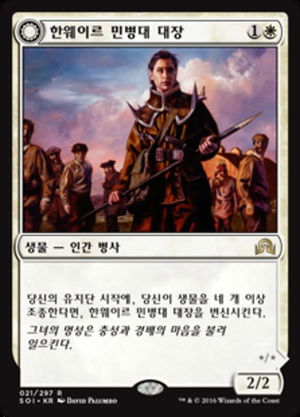
I know many stories of players who speak Portuguese here in Brazil and who started to be more interested in English precisely to read and understand the cards better — in fact, most of them even prefer cards in English, since MTGO, one of the online platforms of the game, is entirely in English.
Free online version
Like it or not, Magic Arena (MTGA) has made our beloved game more accessible – anywhere, anytime, even on mobile. Although the game's economy generates discussions, it is not mandatory to pay to play it, and it is possible to participate in tournaments, build decks, join drafts and sealed, special events., etc.
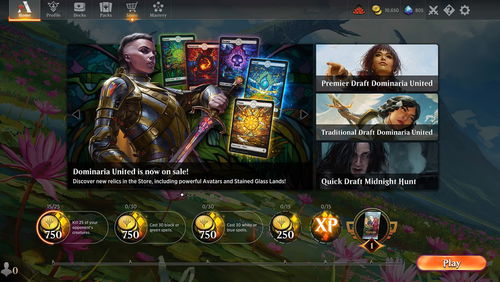
There Are Always New Cards
In these 30 years, Magic adds up to a memorable amount of more than 21,000 unique cards (not counting reprints), and every year, new sets are released with even more cards.
Ad
There's always news, different mechanics, now there are also mixes with other universes (like the recent Warhammer, or even Street Fighter) — so there's always something new to explore.
Fantastic Multiverse
Magic's Lore is rich and full of diverse universes, completing an entire multiverse filled with details, unique locations, species existing only in Magic, and a unique story — along with a magical source called mana , and the Planeswalker spark.
The story even goes on with time travel, destruction of planets, extinction, recovery, powerful villains and everything else a good story can have!
Charismatic Characters
To build the story and the multiverse, the main characters could not be missing, who go on adventures and fight the villains — or have disagreements with each other.

There are a lot more characters and stories in Magic, actually — and as you play and get to know the cards, you realize they have Easter eggs, and they also tell a part of that story.
It's all about falling in love with the universe and certain characters.
It has Fun Sets
The game is renewed with casual sets for pure fun, with weird cards that propose unusual situations — the so-called Un-Set. We've hardly seen this in any game, and it's something unique that we have on these releases.

Of course, usually these sets (or 90% of them ) aren't legal in competitive formats, but if the idea is to have fun, that doesn't matter, right?
Accessible learning content
Well, it must be hard to start learning something that has 30 years of history, right?
In a way, yes, the game has numerous cards and is quite complex — but you don't have to do it all alone or rely on your friends who might explain something wrong to you.
There is a lot of content available on the internet these days about getting started with Magic, how to build your deck, answering questions about rules, and even tutorials explaining how a particular deck or strategies work!
So, it's always possible to learn more and follow news about the game somewhere, the MTG community is quite large, and new content creators appear at each day.
Other games in the same Universe
In addition to the Magic: the Gathering TCG itself, there are several other games that were made based on the universe (there is even a TV animation by Netflix coming up!)
From 1997 until now, there's been a long history of cross-platform games — ranging from Magic Arcades to mobile games — providing multiple ways to interact with this wonderful and unique universe!
We have articles about these Magic electronic games from 1997 to 2008, in addition to 2009-2022 games
here at Cards Realm.
Ad
There is a huge trading context
As the name suggests, Magic is a TCG — “Trading Card Game” — and it fulfills this function of being a TCG. In addition to the aforementioned store system for selling singles, it is also possible to exchange and trade cards with your friends, making the game very dynamic and allowing new deck options.
It is common for players to have “trade binders” to negotiate cards with other players — but remember to always keep an eye on the prices!
The game is 30 years old!
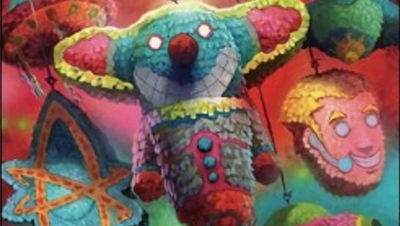
I've already given you 29 reasons! Need more?
The game completes 30 years of existence, and it's stronger than ever, moving countless cards and an entire secondary market — it doesn't stop growing. Aside from the beautiful illustrations, rich lore, unique characters and tribes, differentiated game mode, what else could I say?
It's a game that is in the hearts of everyone who plays it, it's impossible not to have good memories and cultivate special moments that Magic was a part of.
And may another 30 years come (with quality and passion)!
Conclusion
These were 30 reasons I found to play, but I confess that there must be many others! Is there something I didn't remember? Leave it in the comments!
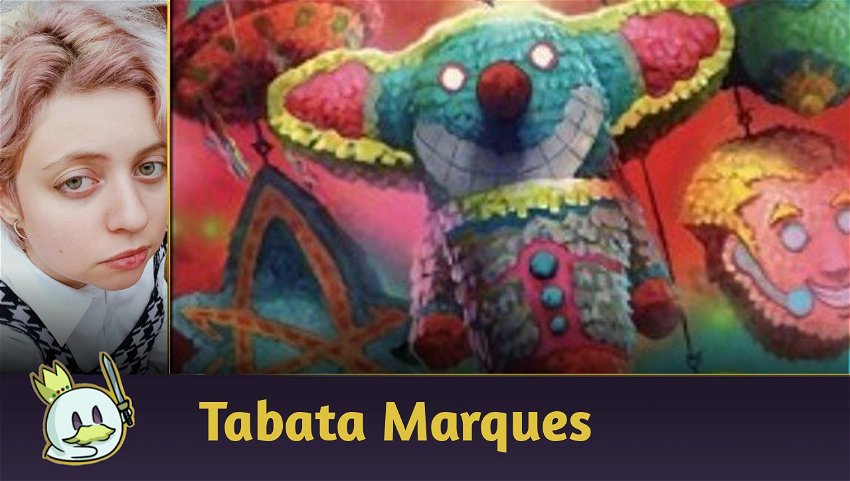


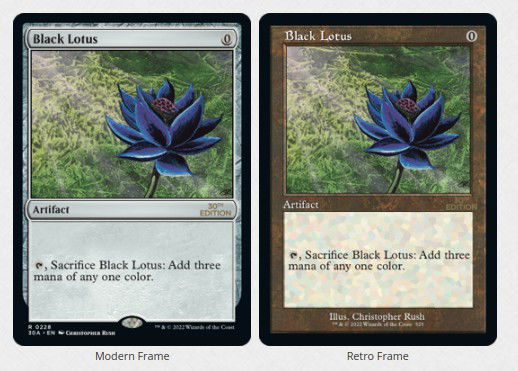
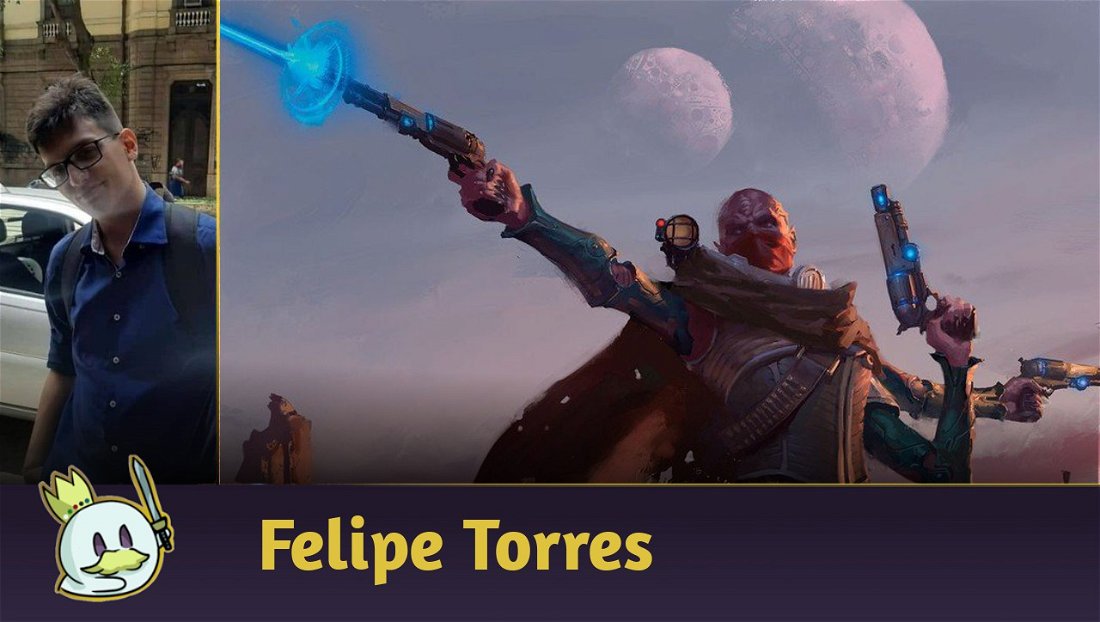

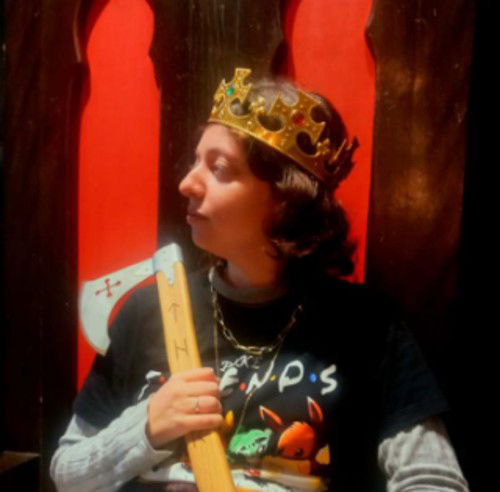

— Comments0
Be the first to comment